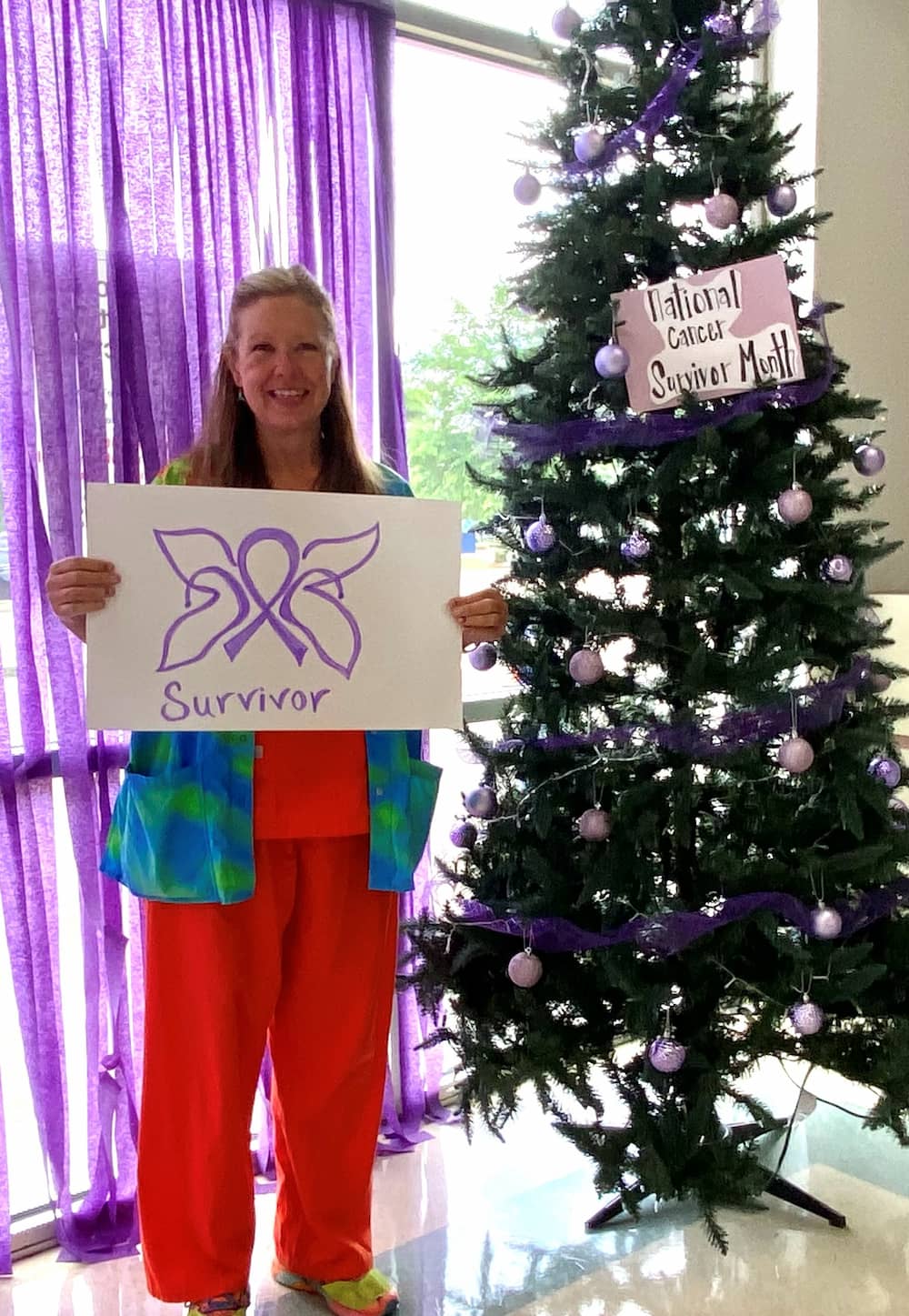CCRI spotlight: Heidi Johnson

I know my initial diagnosis from stories I’ve been told.
As my mother changed my diaper in 1967, she found a lump on my back. I was 1.
Soon, I was taken to surgery and doctors found malignant sarcoma wrapped around my cauda equine in my spinal column. The surgeon did the best he could in that day and time, but feared death or paralyzation and sutured me back up after five hours.
Cobalt radiation, the treatment of choice then, followed and I had several rounds. It likely saved my life but that much radiation to my lower region left me unable to bear children as a young woman.
About a year later, at age 2, another “lump” appeared on my right arm. The sarcoma had metastasized.
Today, I believe I was fortunate, it could have gone to many critical places but chose to go to my right arm. Doctors quickly removed it and more cobalt treatments followed. To this day I have a tiny right arm, a difference I view as a reminder of how lucky I am to be alive.
With my history, any time lumps or pain came, a hospital trip followed with the fear cancer had returned. That growing familiarity with the medical field solidified my desire to one day be a nurse.
I credit God for His role in saving me and believe He called me to help others.
I have been a nurse for 33 years and enjoyed 22 of them in the ob-gyn roles of many kind. I wasn’t able to bear children but I so enjoyed celebrating with expectant mothers in labor and delivery, newborn nursery, child birth classes and as a certified lactation consultant.
It was then I found myself here at UMMC in the infertility department, assisting families like me to try and conceive by IVF or other means. It was a role I was born to take. I was able to say “I understand” and really mean it.
Now, my career has led me to be an anesthesia pre-op nurse and my office happens to be in the Cancer Center and Research Institute, another role I believe God called me to.
As a 54-year survivor, I have been able to offer hope to several patients. What do I tell them?
- Number one, as was my case as a toddler, always follow up on anything suspicious. No question is a stupid question. It’s best to have everything checked out.
- I just encourage them in their cancer journey and use my faith when allowed to give them hope and encouragement. I believe that’s why God has me here.
- There is nothing more important than cancer support groups that are so helpful. All my frightened parents had was our church and they surrounded them with love and prayer. But these days patients can have that and so much more from people in support groups who are going through the same thing.


